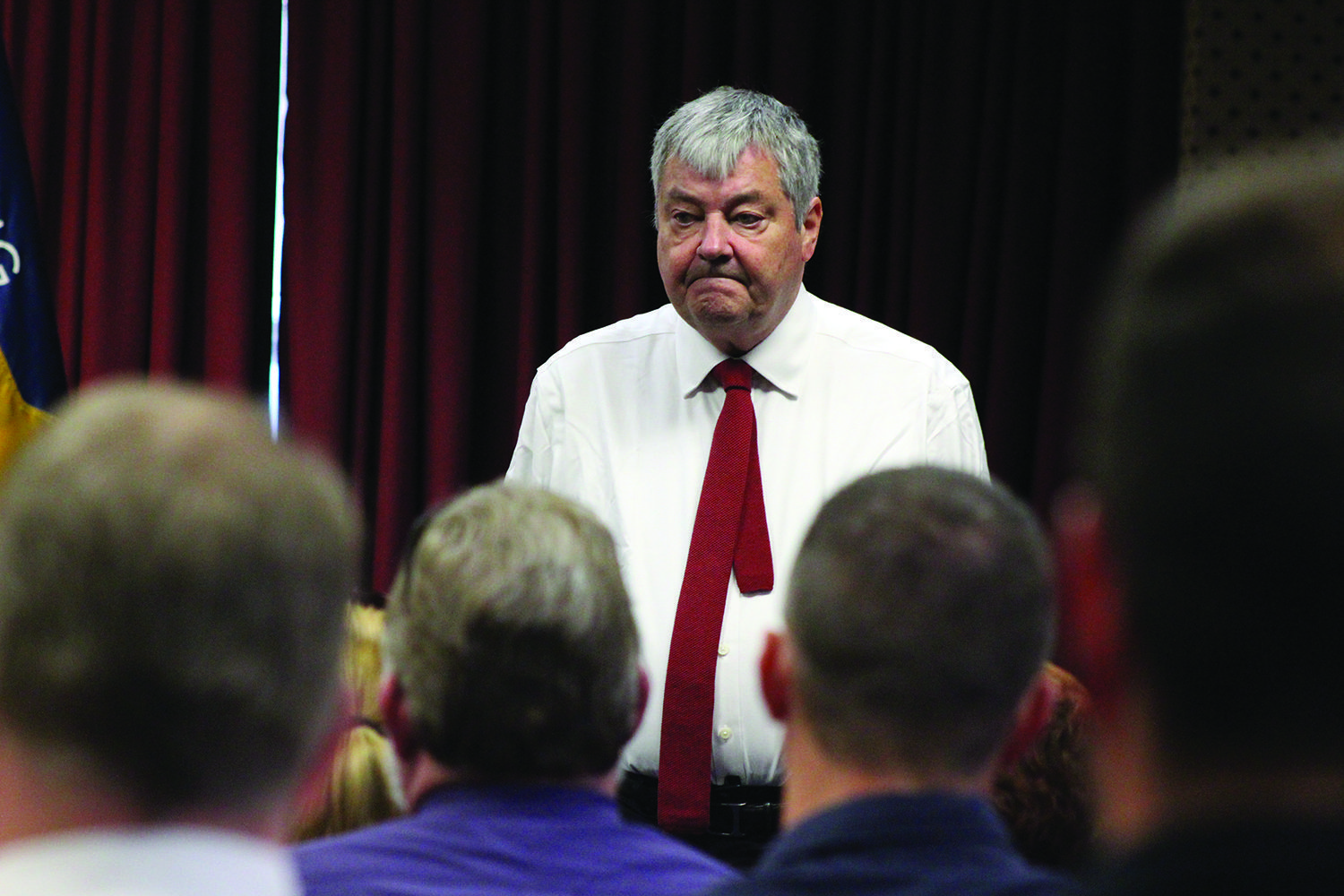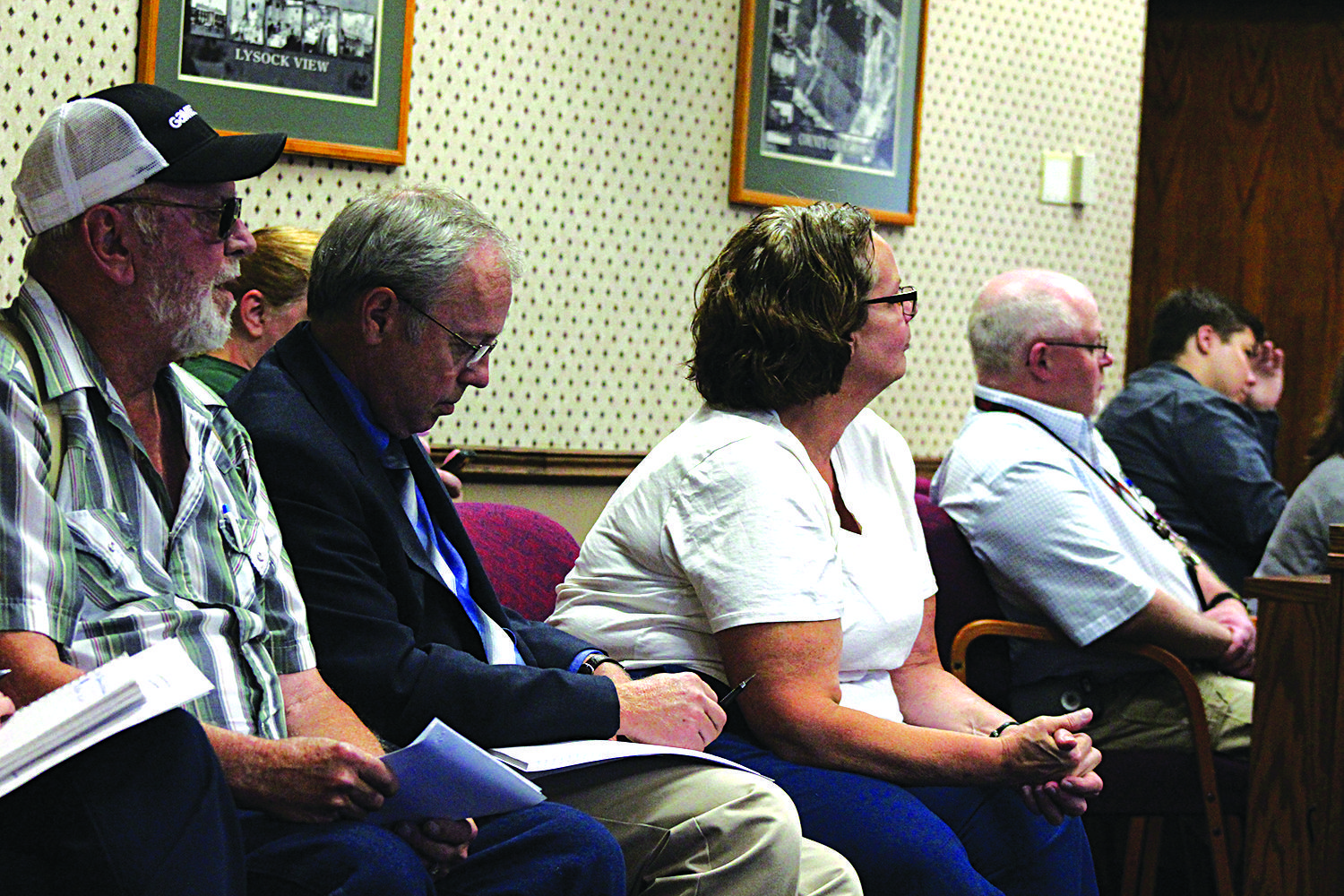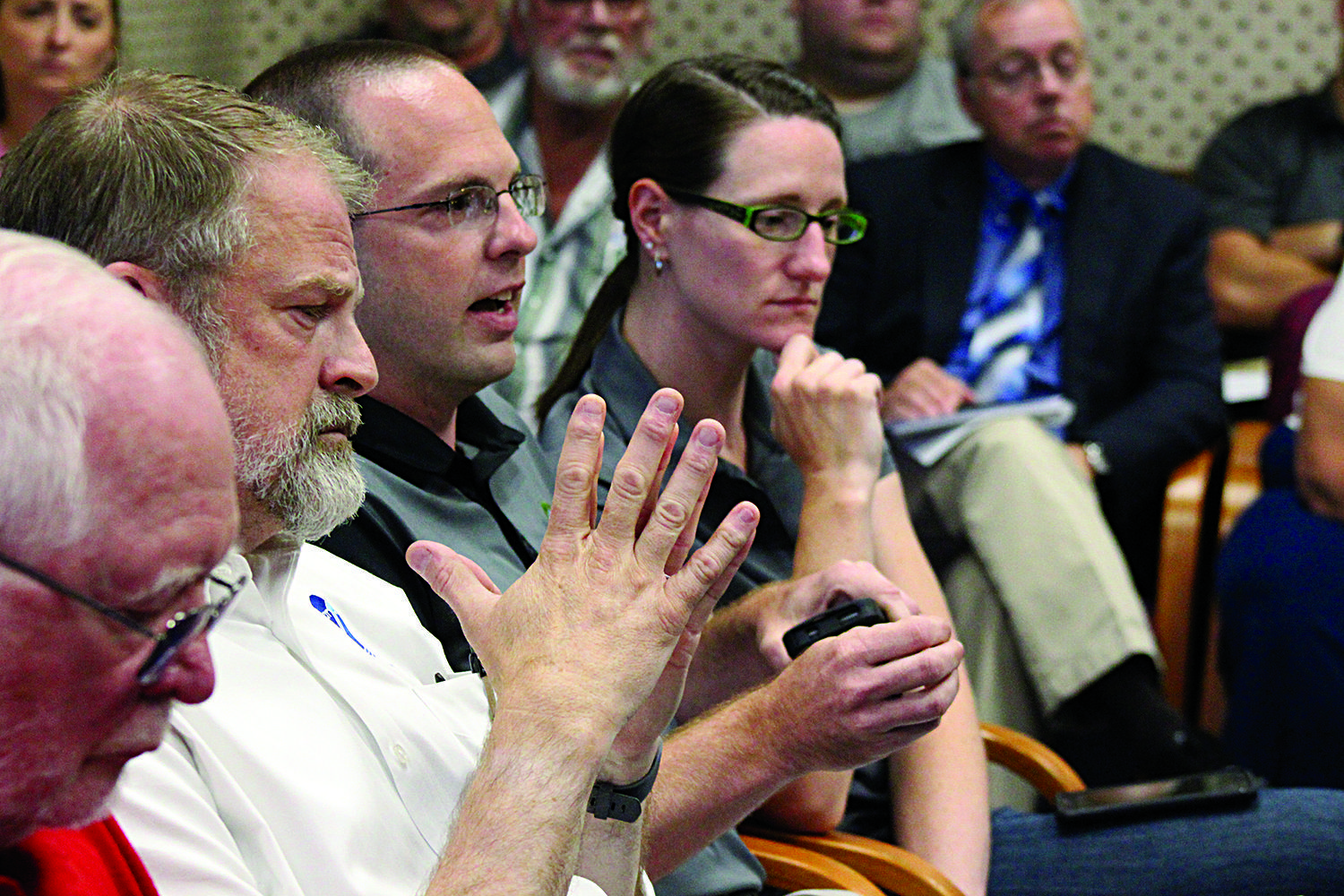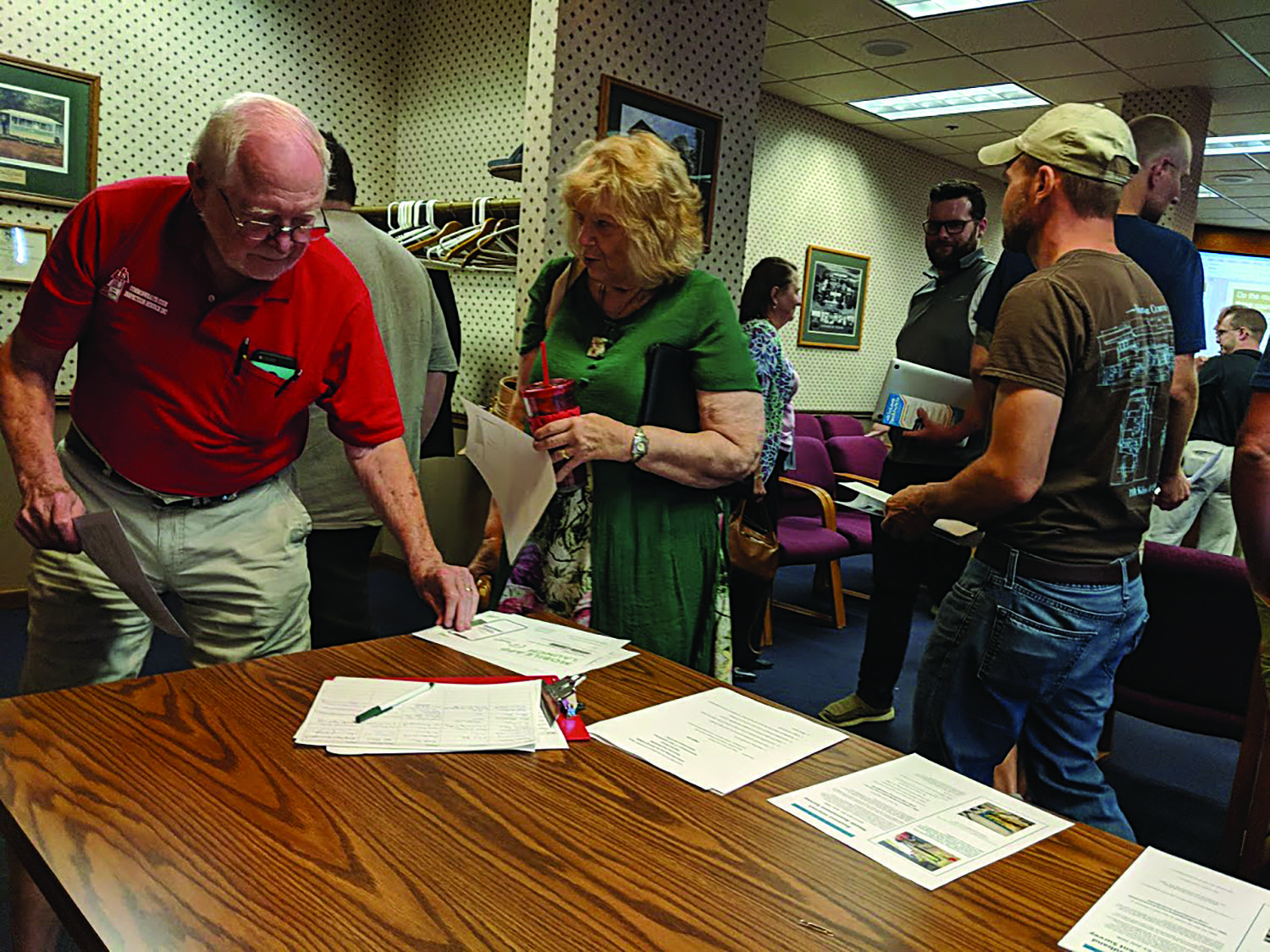WILLIAMSPORT – Big telecom companies are passing over rural areas and it’s now up to local communities to find their own broadband solutions, according to analysts at a public meeting Wednesday.
“It’s expensive in general to build modern communications systems in areas that don’t have a lot of population,” said Jack Maytum, senior broadband analyst with Design Nine, Inc. “We want to be able to provide high-speed broadband to anybody who needs it.”
During the first steps of what could be a 10-year process, analysts, providers and county residents offered possible solutions and concerns to a packed room. The full study encompasses four counties: Clinton, Lycoming, Northumberland and Union and is organized by the SEDA-Council of Governments and contracted to Design Nine. The $80,000 study is paid for through a $40,000 grant and then a $10,000 contribution from each county.
The Lycoming County study is expected to be completed by the end of August and presented to the county commissioners with a recommendation for how to provide broadband to the entire county.
According to the federal government, broadband means 25 megabits of download speed and 3 megabits of upload speed. It’s a number that is a far cry from the three or four megabits most rural residents are stuck with.
“In rural areas, it would be heaven if you got 25 megabits,” Maytum said.
Still in the early phases, there are many unknowns:
- What are the exact broadband needs in the county?
- How will the project be funded?
- How will it be built?
- Who will manage it?
Some of these questions Maytum hopes will be answered through the study, specifically what the needs are and how to build a countywide network. He recommended an open access network managed by the county and open for any internet provider to use.
SPONSORED CONTENT
Questions of funding and management of the network must be answered by the county commissioners.
“There may, or may not, be any increase in taxation,” Maytum said. He added that some options would allow the county to pay for the network through a loan and then make repayments from revenue, not tax dollars.
But laying the groundwork can make, or break, a county-run network. Matt Hoppes, owner of River Valley Internet, a local internet provider, sighted other open access networks like Utah Telecommunication Open Infrastructure Agency (UTOPIA) or Fast Roads that were bought and paid for by taxpayers and then ultimately were mishandled and either sold or now are millions of dollars in dept.
In addition, networks like Drive in Montour County add high fees to the network, which is then not cost-effective for the provider or the customer.
Often, open access network shortcomings stem from a poor foundation, Hoppes added.
“Please involve your local providers in this so we can make sure the network is built properly,” he said.
The intention of the network is to work closely with providers, but Maytum added that it will also depend on an openness from providers to be involved with the network.
Ultimately, the study will simply provide recommendations for the future. It’s up to public officials to decide how much they want to spend and how expansive of a system the county will provide. Maytum said the goal is to provide all county residents with a 25 megabit service.
He said this would be down by building a network of towers throughout the county that can reach into smaller communities often hidden from sight of the large towers on the mountain ridges.
Once a high-speed wireless option is available, then fiber optic infrastructure could be installed to provide service to business customers.
He added that the process is slow and will require an investment from the county and its residents. He also stressed that as elected officials come and go from office, it will be important for the citizens to continue to push for the network to be built.
Maytum urged residents to be “willing to put some effort into it and hold the public officials to the fire.”






